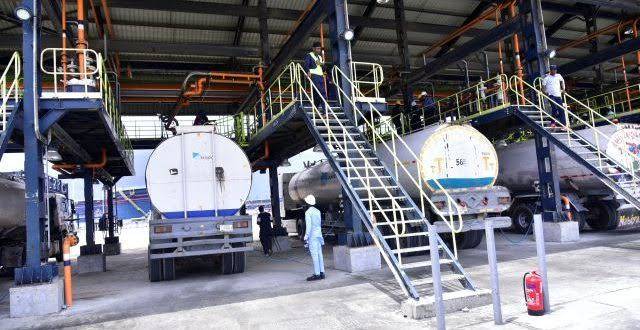Nigerian Petroleum Company Limited (NNPCL) Announces End Of Fuel Imports
In a groundbreaking shift for Nigeria’s energy sector, the Nigerian National Petroleum Company Limited (NNPCL) recently announced that it will cease importing refined petroleum products, instead sourcing its fuel needs domestically from the Dangote Refinery. This decision marks a significant milestone in Nigeria’s long-standing efforts to reduce its dependence on foreign refined petroleum imports. The move aligns with broader national ambitions to strengthen local production and bolster the economy by keeping a larger share of oil wealth within Nigerian borders.
For decades, Nigeria, one of Africa’s largest crude oil producers, has paradoxically relied on imports to meet its refined fuel needs. Despite its vast oil reserves, the country has struggled with outdated and inefficient refineries, which meant that only a fraction of Nigeria’s oil could be refined domestically. This dependency left the country vulnerable to global oil price fluctuations and supply chain issues, which have often translated into volatile fuel prices and supply shortages for Nigerian consumers.
While past governments have sought to revive Nigeria’s refineries, attempts at comprehensive reforms have largely fallen short, keeping the nation dependent on imported fuel. However, with the Dangote Refinery now operational, NNPCL’s announcement may signal the start of a new era for Nigeria’s energy landscape.
The Dangote Refinery, located in Lagos, is currently Africa's largest refinery and one of the world’s largest single-train refineries. With a refining capacity of 650,000 barrels per day, the refinery has the potential to not only satisfy Nigeria’s domestic fuel demand but also export refined products to other countries in Africa and beyond.
Aliko Dangote, Africa’s wealthiest businessman and the force behind the refinery, built the facility with a vision of transforming Nigeria’s oil industry. The refinery is a cornerstone of Nigeria’s push for self-sufficiency, projected to generate thousands of jobs and reduce the significant costs associated with fuel importation. Given the high standards and scale of the refinery’s operations, NNPCL’s decision to source refined fuel locally instead of importing indicates confidence in the refinery’s ability to meet national demand.
Ending fuel importation could have profound economic benefits for Nigeria. Historically, the cost of importing refined fuel has placed a considerable burden on the national budget, with billions of dollars spent annually to import products that could be refined locally. By sourcing fuel from the Dangote Refinery, NNPCL is expected to save on foreign exchange expenditures, which will alleviate pressure on the Naira and potentially strengthen Nigeria’s economy.




No comments yet
Be the first to share your thoughts!